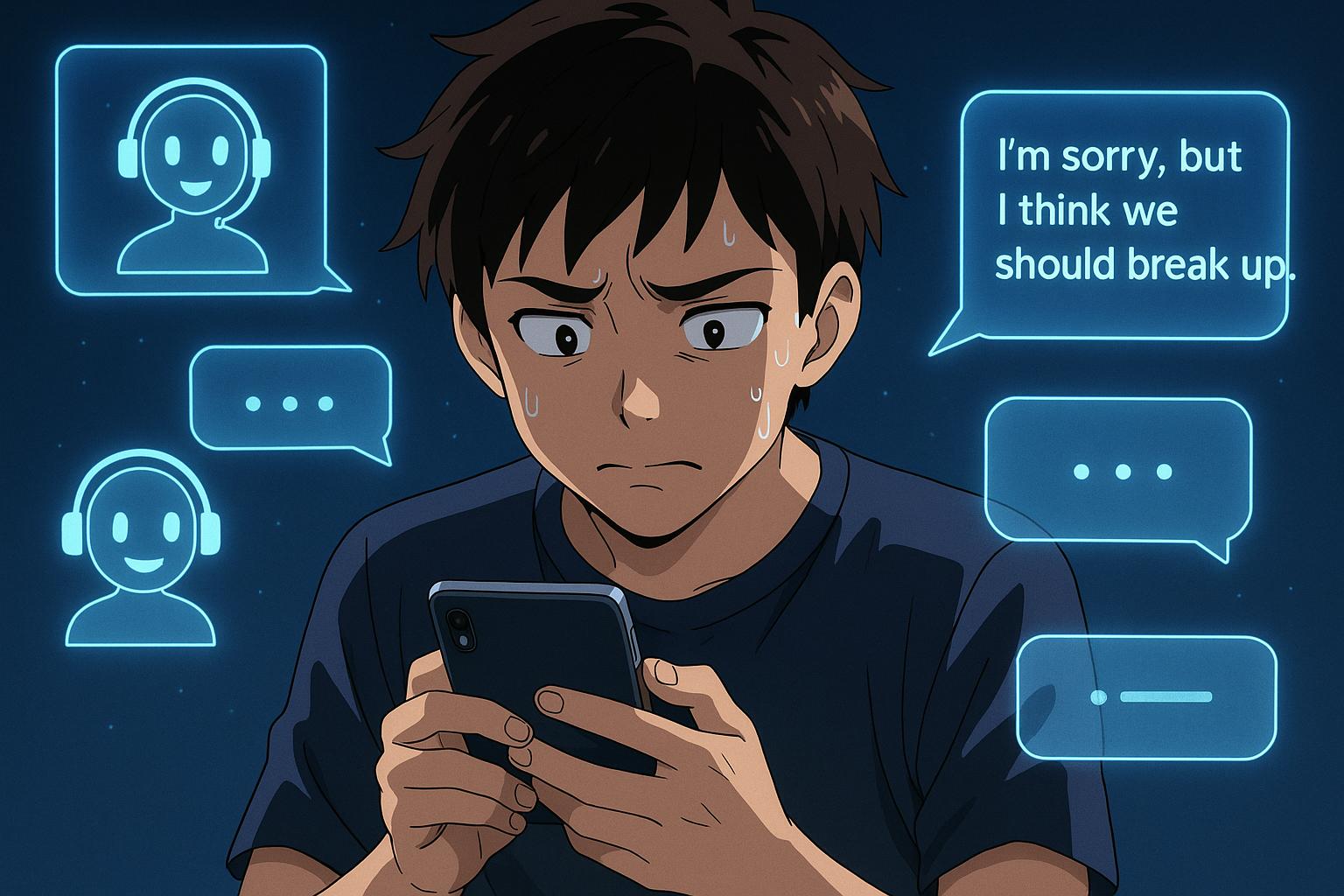In an era where artificial intelligence permeates aspects of everyday life, the murky waters of romantic relationships are increasingly influenced by tech. A remarkable anecdote reveals this trend: at a recent visit to a deli, a young man shared with a friend how he employs ChatGPT to navigate the complexities of modern dating, including crafting breakup texts. His casual admission—"I don't have words"—captures the essence of how AI is reshaping human interactions. While ChatGPT serves as a tool for smoothing the often awkward terrain of romance, it raises profound questions about emotional authenticity and the evolving nature of human connection.
This encounter serves as a microcosm of a broader phenomenon. AI technologies today are rapidly transforming the dating landscape. Platforms such as Tinder, Hinge, and new AI matchmaking services like Rizz and SciMatch employ sophisticated algorithms to enhance user experiences, from optimizing dating profiles to personalising responses. The reliance on AI is particularly pronounced among younger generations, who appear increasingly comfortable seeking virtual assistance in their romantic pursuits. For some, the integration of AI into dating can help eliminate the dreaded "ghosting," a practice that leaves many with unresolved feelings and unanswered questions.
However, this shift to AI in dating is not without its drawbacks. Critics argue it can lead to superficial connections, as users risk losing the ability to communicate their true feelings. A rising trend is noted involving AI companions—virtual entities marketed as "AI girlfriends"—which may perpetuate unhealthy norms, particularly among men seeking emotional fulfilment without investing in genuine human relationships. This raises concerns about the implications for mental health and the development of interpersonal skills, as users retreat further into the digital realm.
Experts like Helen Fisher, a renowned anthropologist, have explored the biological underpinnings of love, demonstrating that human attraction is influenced by complex emotional and hormonal dynamics. In contrast, AI lacks the nuanced understanding of human emotions and relational expectations, suggesting that while it can offer logistical assistance, it cannot replicate the depth of personal connection. Indeed, the dilemma persists: do we prefer the convenience of chatbots, or do we long for authentic emotional exchanges?
Moreover, the ethical considerations surrounding AI-driven relationships remain contentious. Discussions focus not only on data privacy but also the potential for AI to replace human relationships altogether. Users increasingly seek solace in these programmed connections, especially when traditional dating becomes fraught with challenges. Yet, while some studies have indicated potential benefits for mental well-being, the long-term implications of such interactions deserve careful scrutiny.
Former Tinder CEO Renate Nyborg's venture into AI relationship coaching signifies an emerging model that seeks to promote real human connections rather than simulate them. Her new enterprise, Meeno, embodies a commitment to cultivating social skills, viewing empathetic AI as a facilitator of self-reflection rather than a replacement for human interaction.
As the deli conversation illustrates, reliance on AI for emotionally charged communications can transform human relationships, but it may also strip away their soulful essence. The young man's method of using ChatGPT to produce a breakup message may seem pragmatic, but it raises the question of whether genuine emotional intelligence can be coded into algorithms. Our ever-evolving relationship with technology signals a need for balance—between leveraging innovations to navigate dating challenges and preserving the profound human experience of love and connection.
Ultimately, while AI can assist in dating, it cannot replace the vulnerability, depth, and mutual understanding that define genuine relationships. As we tread further into this AI-assisted dating landscape, the collective challenge will be to ensure that while we may adopt new tools, we do not lose the very essence of what makes us human.
📌 Reference Map:
- Paragraph 1 – [1], [2]
- Paragraph 2 – [1], [2], [5]
- Paragraph 3 – [3], [4]
- Paragraph 4 – [5], [6]
- Paragraph 5 – [7]
- Paragraph 6 – [1], [3]
Source: Noah Wire Services
